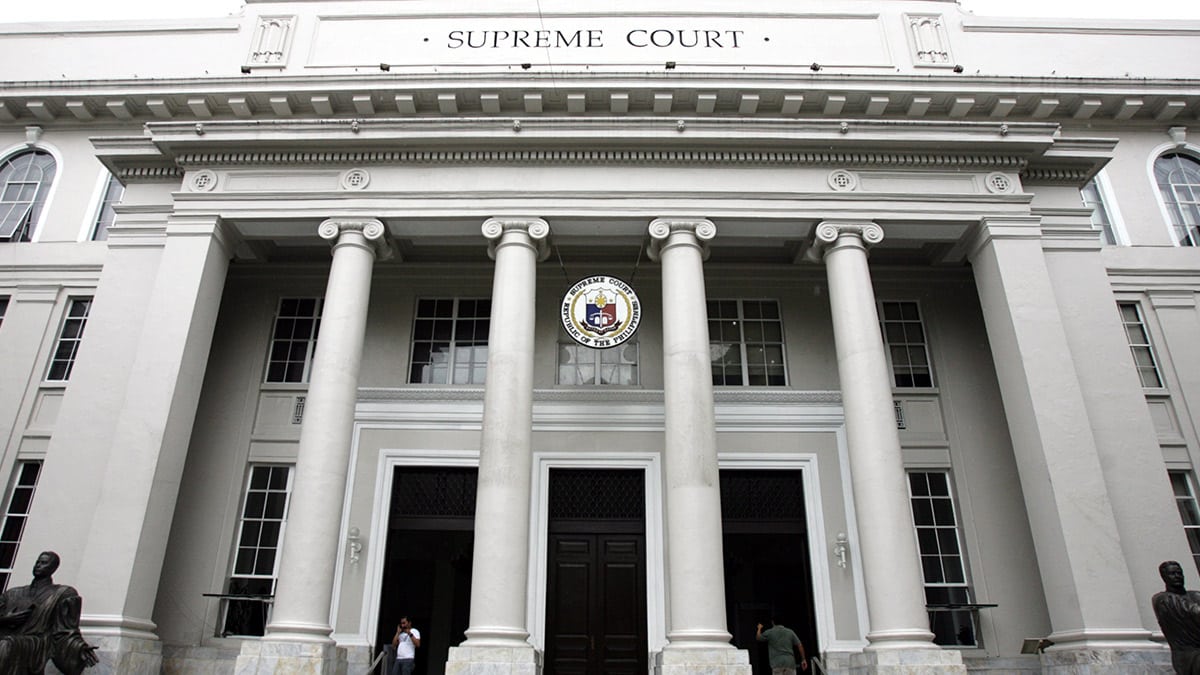MANILA, Philippines — The Supreme Court overturned the dismissal of a Philippine Coast Guard (PCG) official involved in procuring supplies for Supertyphoon Yolanda relief operations with a P67.5-million cash advance, reducing his penalty to a suspension of one month and one day.
The high court ruled that the actions of Mark Franklin Lim II, who was then the head of the PCG’s Special Service Office, were not marred by dishonesty or corruption.
Instead, Lim was held administratively liable only for simple misconduct for circumventing the public bidding process without obtaining the required approval from the head of the procuring entity.
READ: SC voids warrantless arrest, clears man caught with gun
The case stemmed from the complaint filed by the Field Investigation Bureau (FIB) of the Office of the Deputy Ombudsman for the Military And Other Law Enforcement Offices (OMB-Moleo).
The complaint alleged that sometime in 2014 the PCG released special cash advances to its 21 special disbursing officers (SDO), including Lim, amounting to P67.5 million.
Of the total amount, P500,000 was released to Lim to purchase office supplies and information technology (IT) equipment.
COA findings
The Commission on Audit (COA) found several issues with the cash advances, as it noted that: there were no official orders naming the SDOs; some sales invoices and receipts lacked the addresses of dealers and suppliers; and some dealers and suppliers denied issuing the invoices and receipts when the COA contacted them.
As a result, FIB filed criminal charges against Lim and other PCG officials for misusing public funds and falsifying documents, but these charges were eventually dismissed.
Additionally, Lim and the officials faced administrative charges for serious dishonesty, grave misconduct, and conduct prejudicial to the best interest of the service.
In Lim’s case, the FIB alleged that the disbursement of P500,000 was not supported by any order duly designating him as an SDO.
The bureau further said the procurement for which the amount was disbursed did not go through public bidding, with no justification for resorting to alternative procurement methods.
Lim argued that he was officially appointed as an SDO and had authorization to disburse up to P500,000.
Of that amount, he claimed that only P77,166.25 was found by the COA to be backed by “questionable receipts,” and that he has since settled that amount.
He also justified resorting to emergency procurement, saying that it was done amid the relief operations after the onslaught of Yolanda (international name: Haiyan).
‘Creative’ but not thieving
While he admitted that he “may have been creative in fulfilling his responsibility of procuring the items assigned to him,” he firmly denied that he pocketed any money from the purchases.
In a consolidated decision dated July 19, 2017, the OMB-Moleo found Lim and his fellow PCG officials guilty of serious dishonesty, grave misconduct, and conduct prejudicial to the best interest of the service.
They were meted with the penalty of dismissal from the service, with the accessory penalties of forfeiture of benefits and privileges and perpetual disqualification to hold public office.
The Court of Appeals (CA) affirmed the Ombudsman’s decision, saying Lim and the other accused failed to prove that there was an urgent need for the items purchased or that they paid the lowest or most advantageous price.
But in partly granting Lim’s petition for review on certiorari, the Supreme Court’s Second Division ruled that while the law on procurement was transgressed, there was “no substantial evidence on record that Lim concealed or distorted the truth regarding the purchase of the goods.”
No explanation
The Supreme Court noted that the CA’s decision did not explain how it determined Lim was guilty of dishonesty, other than restating the definition of dishonesty according to jurisprudence.
“The CA simply considered Lim to be ‘remiss in his duty to observe the directives of Republic Act No. 9184’ and nothing more … Thus, the Court finds that Lim is not guilty of dishonesty, much less serious dishonesty,” said the high tribunal in its decision promulgated on Jan. 22 and made public only recently.
The Supreme Court also said it could not uphold the appellate court’s finding of grave misconduct, as the Ombudsman “failed to prove that the act is tainted with corruption and a clear intent to violate the law or the rules.”
“Here, the OMB-Moleo presented no evidence to show that corruption was present when Lim violated the rules, or that he intended to flagrantly disregard them. Thus, he is guilty, not of grave misconduct, but of simple misconduct only, as he failed to comply with the requirements of Republic Act No. 9184,” the ruling, penned by Associate Justice Antonio Kho Jr., explained.
Since Lim’s offense was related to his official duties, the high court concluded that he could not be found liable for conduct prejudicial to the best interest of the service.
“Considering that it is undisputed that this is Lim’s first offense in his aggregate of 20 years of unblemished service in the Philippine National Police and the PCG–it is only appropriate that Lim be meted with the penalty of suspension for a period of one month and one day,” the Supreme Court added, referring to the 2011 Revised Rules on Administrative Cases in the Civil Service, which outline the penalties.
